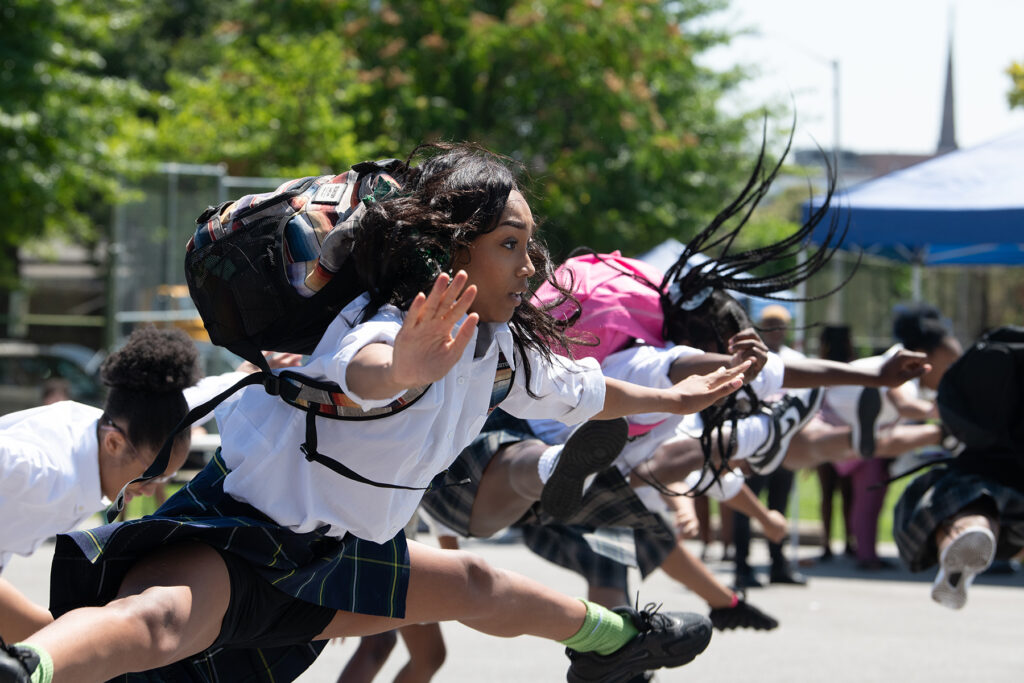Promise Heights
Through the Promise Heights initiative, The Center for Restorative Change demonstrates its long-term commitment to supporting Baltimore’s oldest African-American neighborhoods of Upton and Druid Heights.

Promise Heights is a place-based strategy, an umbrella for a host of cradle-to-career community initiatives established in 2009 by the University of Maryland School of Social Work. It encourages residents of Upton and Druid Heights to build their own power to be self-determined. It helps them make decisions about their own lives and decide what they want and how to get it. This work is about deepening an ongoing restorative relationship in the community to support what people see for themselves in the future rather than pursuing specific initiatives.
Upton/Druid Heights is the first African-American community in Baltimore. Many African-Americans who have lived there have made an international impact, from Booker T. Washington to Thurgood Marshall. People are proud of the neighborhood’s history, for example, hosting the first public school for Black children in Baltimore. They are no different from people anywhere else across America. They want their children to get a high-quality education. They want to have infrastructure in their community. They want to be safe when they walk on the street. They want to be healthy and have access to all of the resources they need to prosper.
Promise Heights first got a grant from Promise Neighborhoods, an initiative of the U.S. Department of Education under the Obama administration. It focused on breaking the cycle of intergenerational poverty. It planned to do so by significantly improving the educational and developmental outcomes and overall life prospects of children and youth in America’s most distressed communities. The core idea was that providing effective schools and strong systems of support to children, youth, and their families in poverty and meeting their health, social services, and educational needs would offer them the best hope for a better life.
Inspired by Geoffrey Canada’s Harlem Children’s Zone, Promise Neighborhoods took a place-based, data-driven approach to ensuring the long-term success of children, families, and neighborhoods. Today, Promise Heights is a strategy to improve outcomes for children and families. It also employs licensed social workers and community residents to lead the work and provide direct services.
Get In touch

by the numbers
+5.6%
kindergarten ready students

Increase in the number of students ready for kindergarten (KRA) compared to previous year (2021 vs. 2022)
130
community partnerships

86%
optimistic community members

Surveyed community members who cited they feel things will get better over the next 12 months.

